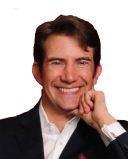
Happiness
Is Happiness a Choice?
Shawn Achor and Michelle Gielan on choosing happiness.
Posted May 24, 2017 Reviewed by Ekua Hagan
Key points
- Happiness is a choice, but being unhappy is not a failure.
- When it comes to happiness, finding joy in the journey is key.
- Happiness is about being conscious of where one wants to devote mental resources and training the brain to do it.

While attending the World Happiness Summit, I had the opportunity to sit down with two of the most prominent voices on the subject of happiness—Shawn Achor, author of The Happiness Advantage, and Michelle Gielan, author of Broadcasting Happiness. We discussed whether or not happiness is in fact a choice and some simple practices for enhancing happiness. The following is an excerpt from that conversation:
Dr. Woody: You both describe happiness as the joy of moving towards your potential and how that movement can fuel happiness. One of the challenges with moving towards potential is the awareness of what that potential is and how to derive joy from it?
Michelle Gielan: First, it’s important to acknowledge that life is a journey—a journey that can provide us with joy. And, realize that the journey doesn’t include just high moments, there are also challenges along the way.
What you’re asking is a really important question. Are we saying: Is this my potential as a manager? Is this my potential at Excel spreadsheets? Is this my potential as a chef? In parenting and so on? It’s really the realization that potential can lie in a larger pot or it can be really specific. Recognizing you want to grow to your potential in a specific domain and that there’s more you can achieve is where I think it gets fun. It’s about finding opportunities to grow and the joy of being in the midst of that journey.
Shawn Achor: As Michelle says, I think the joy in the journey is key. You have to ask: Does this goal fuel me or not? And, if this goal is getting in the way because I’m not the CEO of a major company or I didn’t get to be a rock star, then you let that goal go. As you set goals, never make the mistake of assuming you’ll be happier once you get there. Never assume that once you’re the CEO you’ll be happier. Because we work with those types of people and they’re not.
I think the key is to use the joy I feel right now to move me toward my goals, but I don’t need to necessarily get there in order to feel happy. I feel happiness today and along the way.
DrW: So, this begs the question: Is happiness a choice, and have unhappy people failed to make the choice to be happy?
SA: What I want people to realize is happiness can be a choice, and it’s something you can practice. But if you’re feeling unhappy, that’s not failure. What we want to steer people away from is apathy, which is that loss of movement. So, we want to focus on getting people back towards movement by using whatever hooks we have. So, if you’re feeling unhappy in a relationship, let’s talk about why you feel unhappy in your relationship right now. Maybe we can solve that problem or maybe there is something you can change. It always starts with the conversation.
The other thing is to show them examples of people like themselves and how change is possible. Sometimes it just takes reminding them that change is possible.
DrW: That’s interesting, the idea of movement as an element of happiness, whereas apathy is that lack of movement. How do you encourage that positive movement and what are some ways of “practicing” happiness?
MG: It’s about being conscious about how we devote our mental resources and training our brain to do it. That’s why we advocate simple practices like writing down three things you’re grateful for or sending a positive email to someone praising or thanking them. By doing these habits, we’re constantly bringing our brain back to the positive, getting it to refocus on the good things that are happening, the people that are meaningful in our lives. And the more we practice, the easier it becomes to see that stuff in our environment more naturally and more easily.

